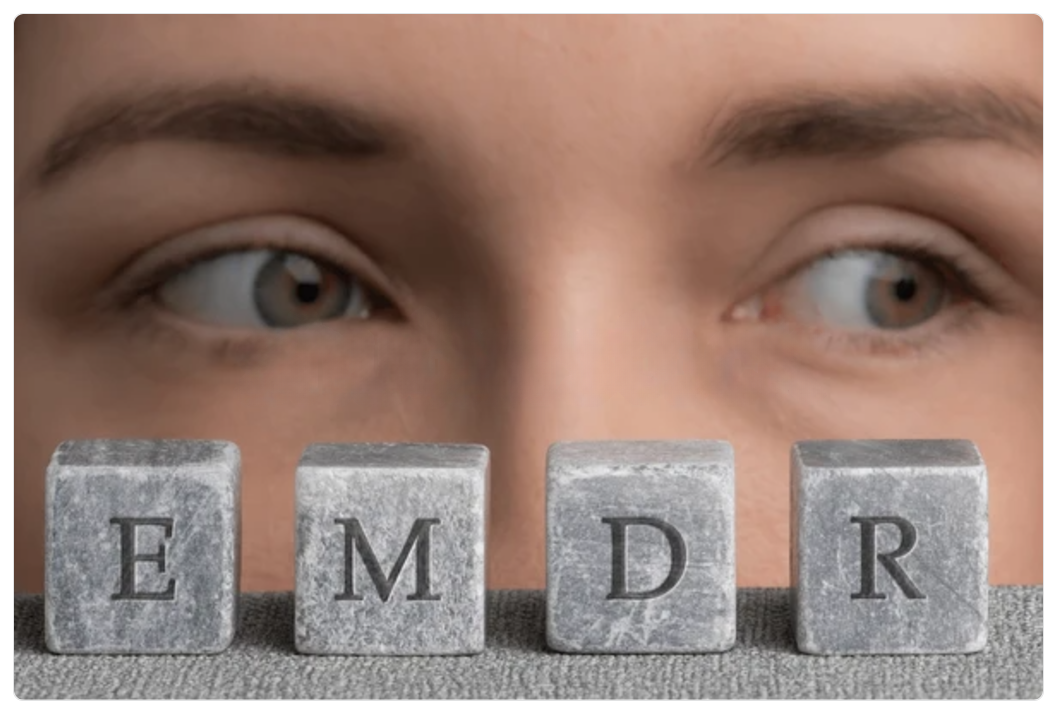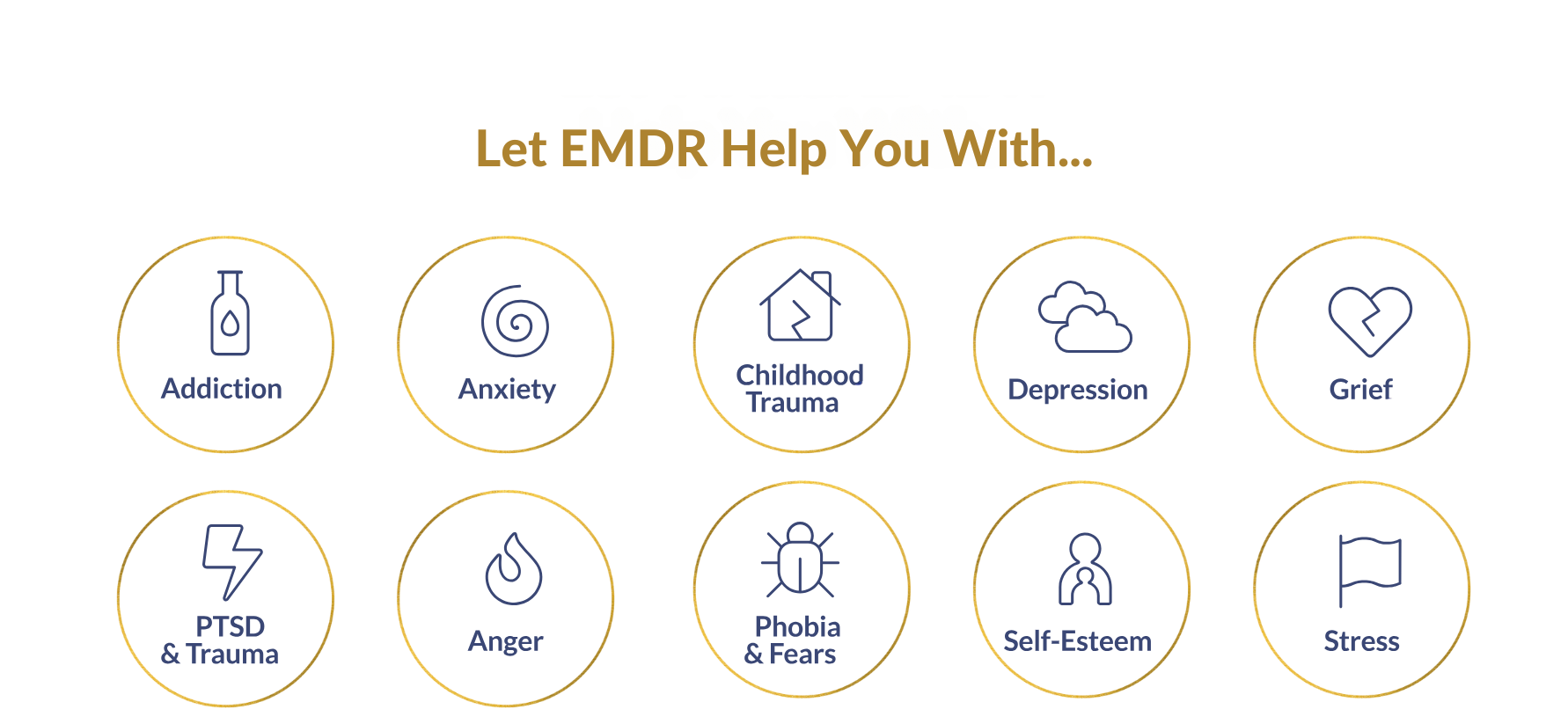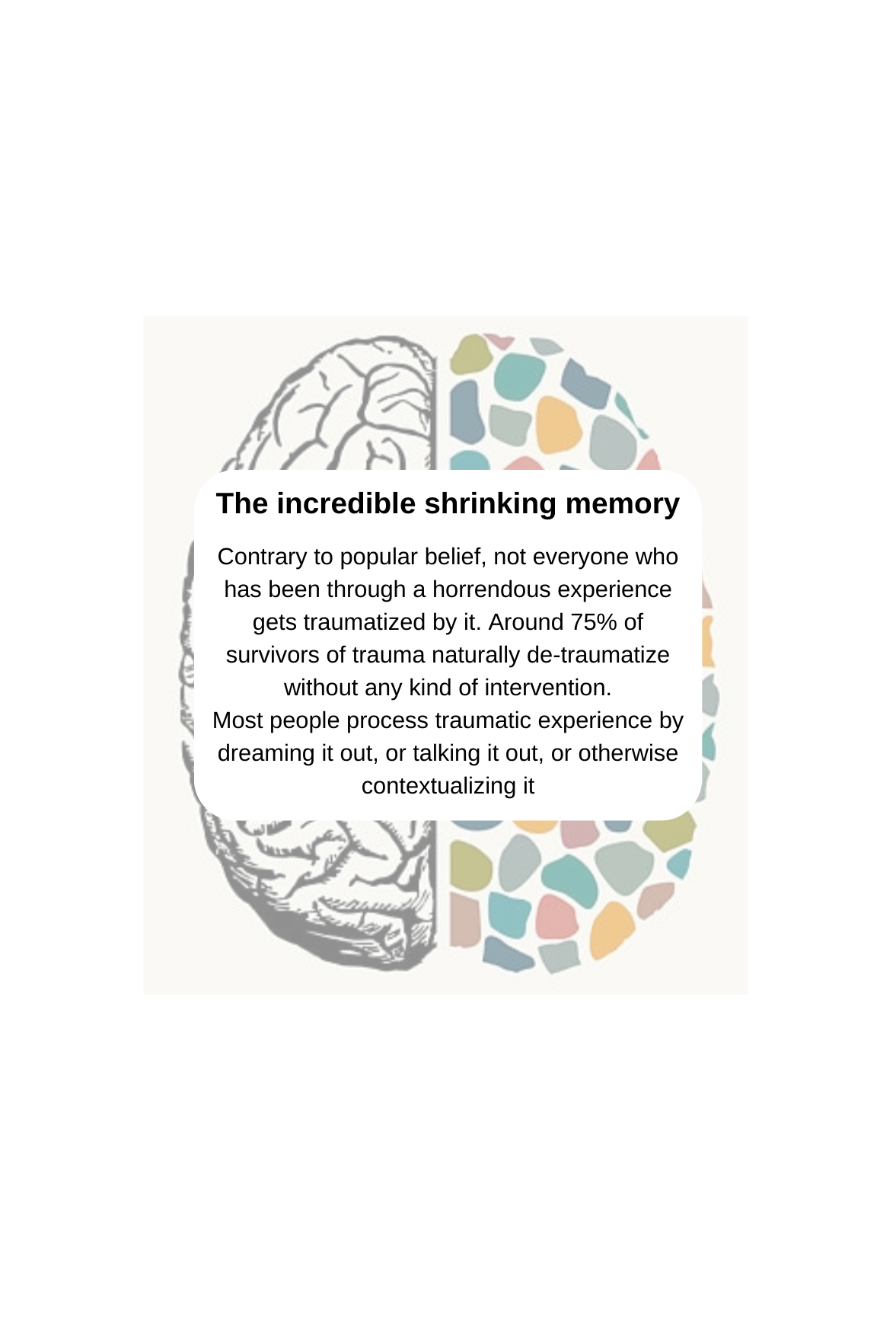
-
What is it?
Eye Movement Desensitisation and Reprocessing (EMDR) is a revolutionary mental health therapy designed to help individuals overcome and heal from trauma and distressing life experiences. -
Build Resources
Learn techniques that assist you to Feel Calmer. Majority of People feel an improvement in their emotional state after using the proven techniques that assist emotional regulation.
My Approach
Evidence-Based Techniques
Compassionate care
Common EMDR Questions - Answered
Please Email me with any questions and ill ensure to answer with knowledge I have available to me.
What is EMDR therapy?
How does EMDR work?
What can EMDR help with?
Anxiety and panic disorders Depression Phobias Complex PTSD Grief and loss Chronic pain Stress
How long does EMDR take to work?
Is EMDR recognised by the NHS?
Is EMDR suitable for everyone?
Does EMDR erase memories?
Does EMDR work for childhood trauma?
Can EMDR make things worse before they get better?
Do you need to talk about the trauma in detail during EMDR?
Can EMDR be done online?
How does EMDR compare to CBT?
EMDR processes distressing memories using bilateral stimulation. CBT focuses on changing unhelpful thoughts and behaviours.
Can EMDR help with grief and bereavement?
Can EMDR help with anxiety and panic attacks?
Does EMDR work for phobias?
Does EMDR work for complex PTSD (C-PTSD)?
Can EMDR help with self-esteem issues?
Can EMDR be used for addiction?
What is the difference between EMDR and hypnosis?
EMDR processes distressing memories using bilateral stimulation. EMDR is not hypnosis. In EMDR, clients remain fully conscious and in control of the process. Hypnosis, on the other hand, induces a trance-like state. EMDR works by reprocessing memories, while hypnosis often involves suggestion therapy.
Can EMDR help with chronic pain?
Can EMDR help with OCD (Obsessive-Compulsive Disorder)?
Can EMDR be used for workplace stress and burnout?
Can EMDR be used for birth trauma and postnatal PTSD?
What age groups can have EMDR therapy?
Can EMDR help with insomnia or nightmares?
Can EMDR help with medical trauma?
Can EMDR help with intrusive thoughts?
Can EMDR help with sexual trauma and abuse recovery?
Is EMDR effective for first responders and veterans?
What is the evidence base for EMDR?
NICE guidelines (2018) for PTSD treatment The World Health Organization (WHO) recommendations for trauma treatment Research published by UK institutions such as King’s College London and Oxford University
Can I do EMDR on myself?
How do I know if EMDR is working?
Signs that EMDR is effective include:
Reduced emotional distress when recalling traumatic events Decreased frequency of intrusive thoughts or flashbacks Improved mood, confidence, and emotional regulation Feeling lighter and less triggered by past memories


